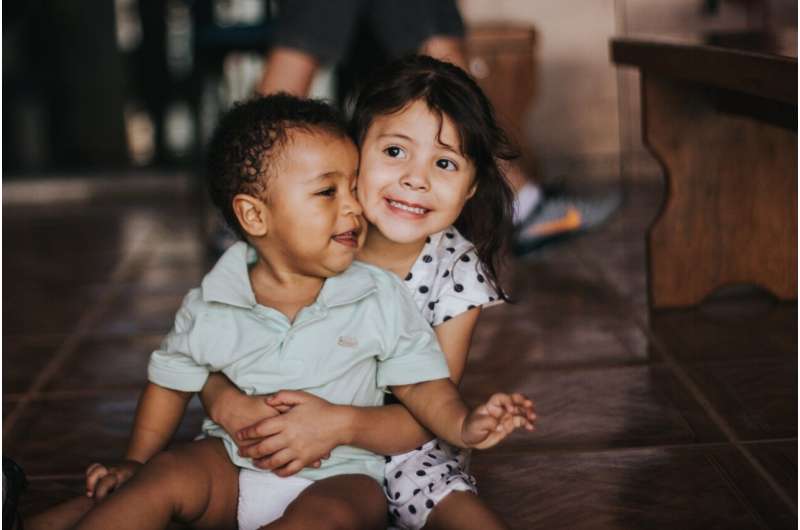
Sylvia Perry studies the formation of racial attitudes and practices designed to reduce prejudice, work that is key to fostering classroom environments, and a society at-large, where everyone can achieve and thrive.
Her psychology lab has developed a learning task for white parent-child pairs that includes shared viewing of cartoon vignettes, followed by prompts that facilitate a color-conscious dialog about race. Preliminary findings have been promising, showing a measurable decrease in implicit bias about race after the conversation.
Key to this intervention is the involvement of parents in the task. Perry shares what inspired her to pursue this parent-centered approach, and why it matters.
Q: What is the best age to begin conversations about race with children? And what advice do you have for parents?
If your child can have conversation with you, they are old enough to start having conversations about race. As early as preschool, children start showing racial group favoritism.
Just because you haven’t heard your child say anything prejudiced does not mean that those attitudes are not forming. Children are not immune to the daily signals that they are observing in the world that indicate that some children are to be valued over others.
Q: What inspired you to put parents at the center of the intervention your lab is studying?
Parents (and peers) are a major source of children’s socialization processes. The signals that parents send to their children every day will help them understand what they should and should not value, who they should and should not value, and how to make sense of their social world.
If children are exposed to prejudiced information through social media, their peers or the classroom, their parents can counter that narrative by talking to their children about the history of and existence of racism within this country, the social construction of race, and the systemic biases that contribute to racial inequality.
Q: In a recent article, you argue that society benefits most when parents are the driving force in addressing racial bias. Why might white parents feel a pull to delegate this work to outside experts?
There is evidence to suggest that some white parents may feel like they are not prepared for these kinds of discussions, or that they will mess things up if they attempt to talk to their children about racial inequality.
In our own research we have found white parents choose to take a passive approach to these conversations, simply waiting for their child to bring it up. Some have also expressed that they don’t believe these topics are particularly relevant to their lives. Others have expressed a desire to shield their children from the realities of racism. That is, they think they are too young to learn about racism, and they worry about the stress that it might bring about.
Parents can seek out resources to counter those tendencies, such as: https://www.teachingforchange.org/teaching-about-race
Source: Read Full Article
